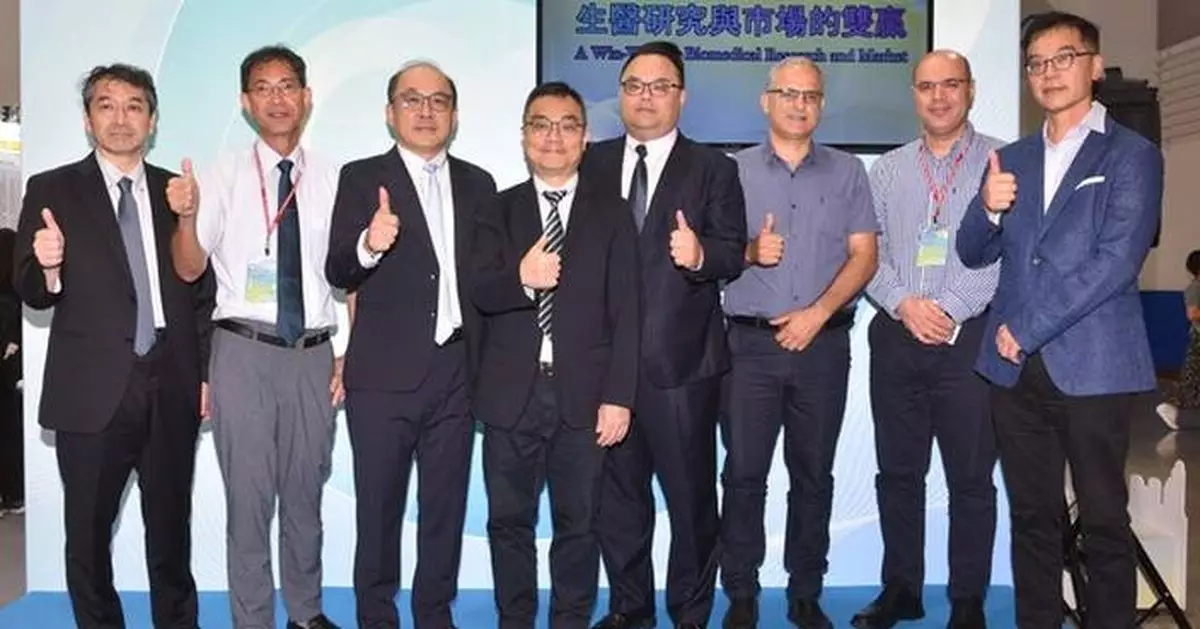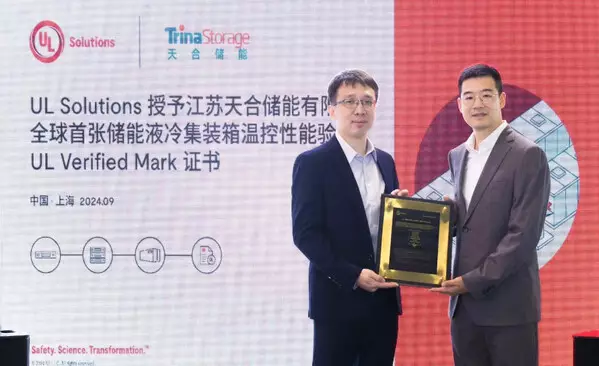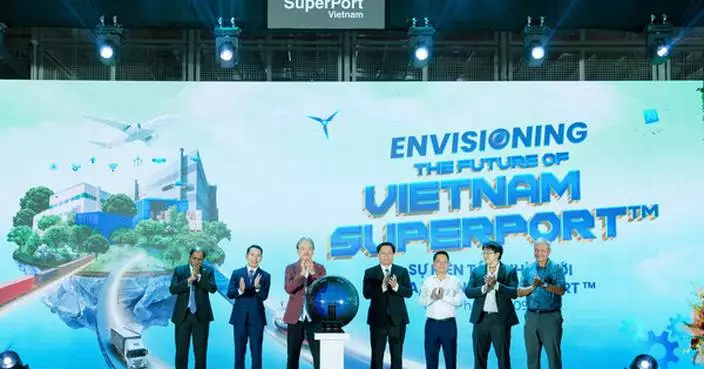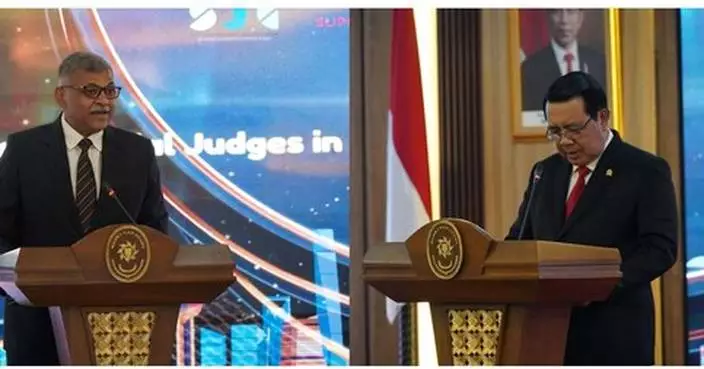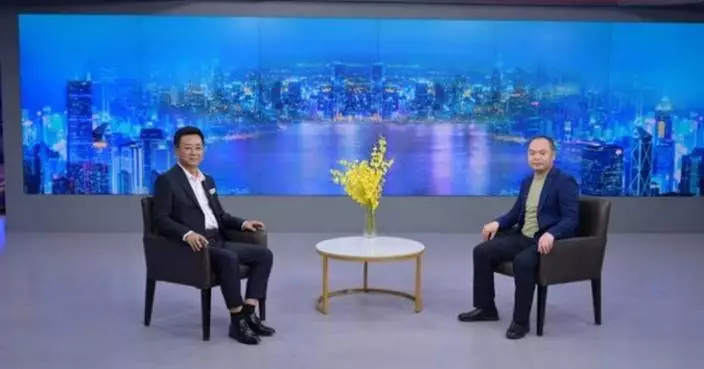TAIPEI, Sept. 11, 2024 /PRNewswire/ -- The High-Value Biomaterials Research and Commercialization Center (HBRCC) at "National Taipei University of Technology" (NTUT) on July 26 held an international forum at the 2024 Bio Asia-Taiwan. The event gathered renowned biomaterial experts from across the globe, including Professor Takanori Ichiki from Tokyo University, Professor Yasuhiko Tabata from Kyoto University, Professor Yu-Chen Hu from "National Tsing Hua University", Professor Haytam Kasem from Azrieli College of Engineering Jerusalem, Professor Maziar Ramezani from Auckland University of Technology, and Deputy Director Lun-De Liao of the Institute of Biomedical Engineering and Nanomedicine (IBEN) at "National Health Research Institutes" (NHRI). Presided over by HBRCC Director Hsu-Wei Fang, the forum focused on models for international collaboration in biomaterials and sharing of experiences in industry-academia cooperation by the attending experts, with the aim of strengthening cross-border exchanges and jointly advancing research in the field of biomaterials.
NTUT and NHRI Ink MOU on Deepening Collaboration to Jointly Promote Taiwan's Biomedical Industry
At the event, experts witnessed the signing of a memorandum of understanding (MOU) between NTUT and NHRI to promote academic and talent exchanges and to jointly advance technology transfer. Director Hsu-Wei Fang stated that the HBRCC has been working closely with NHRI in technology transfer projects, with successes including patents on an artificial tear solution in Japan and Taiwan, as well as assisting the NHRI in planning the commercialization of the research outcome. Director Fang expressed hopes that the MOU will spark new opportunities in Taiwan's biomaterials field. IBEN Director Lun-De Liao said that the NHRI is Taiwan's leading medical and biomedical research institute, and that the MOU with NTUT's HBRCC will bring closer collaboration in technical research, talent cultivation and technology transfer, bringing new momentum to joint efforts on propelling biomedical research and academia-industry collaborations.
3P Model to Further Enhance Technology Transfer and Development of Taiwan's Biomaterial Industry
Director Hsu-Wei Fang stated that assisting professors in commercializing their findings into products has been a perennial question at his institution, which is in particularly challenging in biomedicine due to regulatory, safety, and efficacy considerations. He also noted that many countries and universities have different approaches to technology transfer. Deputy Director Lun-De Liao stated that the 3P (Public-Private Partnerships) model can potentially transform the mindset on academia-industry collaborations, bring greater benefits to both sides and advance Taiwan's biomaterials industry. Deputy Director Liao also expressed hopes to drive Taiwan's industry development with the 3P model.
Taiwan, Japan, Israel, New Zealand to Strengthen Exchanges, Competitiveness Leveraging Taiwan's Industry Advantages
Professor Kasem suggested that international exchanges could start with joint authorship of papers between researchers of Israel and Taiwan, and later progress to joint efforts at securing patents to attract commercialization opportunities. On education, the two sides could establish joint courses to keep students abreast of global academic and industry trends as well as enhance their global vision and hands-on capabilities. Professor Maziar Ramezani recommended Taiwan to work with top global institutions and participate in global research networks, as well as ink bilateral agreements with countries excelling in biomedical research to deepen collaborations and elevate Taiwan's competitiveness. He also recommended Taiwan to leverage its advantages in the semiconductor and electronics sectors to gain an edge in the biomedical field.
Professor Ichiki stated that Japan and Taiwan have been collaborating in the semiconductor sector, and that Taiwan's long-standing focus on nanotechnology will be key to advancing its biomedical industry and deepening collaboration with Japan. Professor Ichiki emphasized that students should familiarize themselves with domain knowledge to lower obstacles to academic-industry collaborations as well as broaden their resources and professional networks. In conclusion, Professor Yu-Chen Hu stated that most of the industry-academia collaborations in Taiwan are small-scale and mainly focused on addressing specific industry bottlenecks, and that such efforts should scale up to larger projects to better encourage joint development of innovative technologies or new drugs. However, he said that despite Taiwan's strengths in R&D, its biomanufacturing capabilities lags behind South Korea, China, and Singapore. To address this concern, strengthening biomanufacturing should be prioritized to ensure that Taiwan has the domestic capacity to develop and manufacture drugs.
NTUT's HBRCC Hoping for New Global Horizons Through International Collaboration
Director Fang stated that founded during the Japanese occupation, NTUT is a century-old institution and that 10% of alumni currently hold leadership positions in Taiwan's publicly traded companies. He said that the university emphasizes both theory and practice as well as focuses on achieving technology transfer, adding that further improvements in resource integration, market insights are needed to accelerate development and build new Taiwanese brands. Noting that the HBRCC is well experienced in technology transfer, Director Fang said that he is looking forward to collating the attending experts' insights and forming closer international collaborations to jointly open new horizons in the global biomedical industries.
** The press release content is from PR Newswire. Bastille Post is not involved in its creation. **
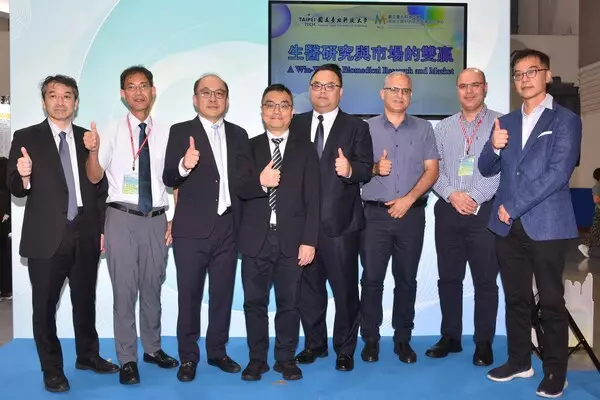
NTUT Forum Gathering Leading Global Experts Marks New Milestone in International Collaboration


